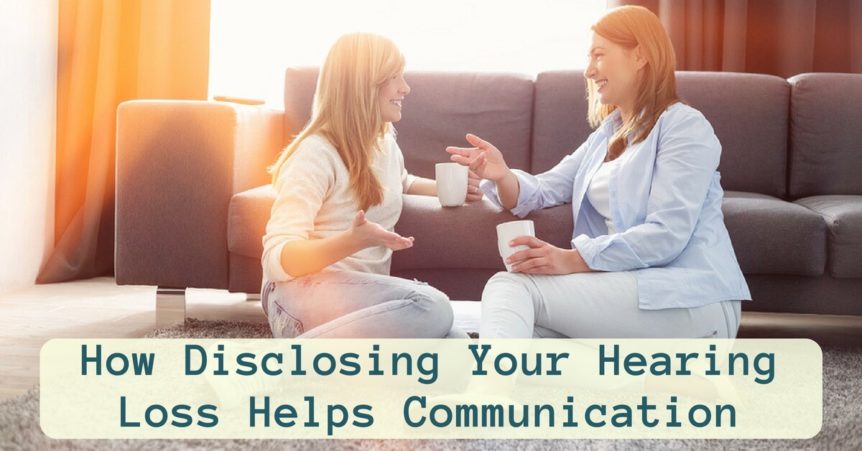Hearing loss affects a startling number of Americans. Fifteen percent of those over age eighteen report a degree of hearing difficulty, a number that skyrockets when we look at the over 65 demographic. Yet still, those who suffer from hearing loss are reluctant to disclose their difficulty.
But it is often the act of bringing uncomfortable issues forward that allows us to have some perspective around them. The trick is in deciding how, when and what to share. And with whom. If you have recently been diagnosed with a hearing loss, the way in which you disclose your experience could help improve communication with your friends and loved ones.
Why it’s hard to speak up
With hearing loss, we may experience feelings of self-judgement and unworthiness that cloud our thoughts around our own abilities or lack thereof. While we can logically accept that to be human is to be imperfect, proudly claiming those imperfections often lies just beyond our reach.
Try to reframe your condition of hearing loss as a fact about you, rather than a statement that reflects your worth. Try imagining a coworker making a statement about one of your peers. Perhaps they tell you that Donnell has a bad back. Notice your immediate reaction. It probably wasn’t “Well, Donnell’s shortcomings detract from who he is as a person. His bad back makes him less valuable.” More likely, you felt empathy and considered strategies to accommodate the issue. Take that exercise a step further and anticipate that is the response you’ll receive when you decide to disclose your hearing loss.
Levels of disclosure
A 2015 study published in the Ear and Hearing journal defines three levels of disclosure:
Basic Disclosure
Where the condition of hearing loss is explained, possibly adding a few surrounding details. This might be a suitable solution in a situation in which conversation is limited. Perhaps an interaction with a salesperson or someone with whom you don’t wish to establish a long term communicative relationship. There are a number of situations throughout your day that meet these conditions. It isn’t always in your best interest to delve into the depths of hearing loss in every conversation you find yourself engaged in.
Nondisclosure
Where the condition of hearing loss goes unshared. There may be times when you don’t wish to address your hearing loss. Certainly, you’re the best judge of this. For instance, you may not want to disclose your hearing loss on a job application or before you meet someone. Perhaps you find that this information is best shared in a face to face interaction when it becomes necessary to the fluidity of the conversation. But do keep in mind that disclosing hearing loss after your initial diagnosis will probably feel unfamiliar, which is not a good reason to choose to remain silent. Like working a muscle, repetition of unfamiliar behaviors and habits may begin as uncomfortable but eventually become second nature.
Multipurpose disclosure
Where hearing loss is communicated and a solution is simultaneously proposed. This is perhaps the most successful way to begin a discussion about your hearing loss, because it also offers a way or ways to immediately improve the interaction.
Saying something as simple as “I have hearing loss, so it would be better if we faced one another in conversation” is a straightforward way to explain the realities of your current conversation, present a way to successfully overcome the obstacle in the moment, as well as open the door for future communication about your hearing loss. Once the words are out, the hard part is over and the rest of the interaction can focus on the issues at hand.
Look forward to a brighter future
Further reporting in this study showed that those who use the multipurpose disclosure strategy experienced reactions of help, support and accommodation after disclosing. Providing your conversation partners with a directive to improve the communication also shifts the focus off of the hearing loss and into solution-based thinking. It gives the other person a reason to feel good after leaving the conversation because at the very least, and despite the outcome of the actual conversation, they were instrumental in overcoming an obstacle in partnership with you.
Are you getting used to life with hearing loss? At Custom Hearing Solutions, our team of audiologists and hearing instrument specialists is here to help. Having a frank conversation with your audiologist can assist you in coming up with strategies that work for you and that empower you in a multipurpose disclosure scenario. Give us a call today!

